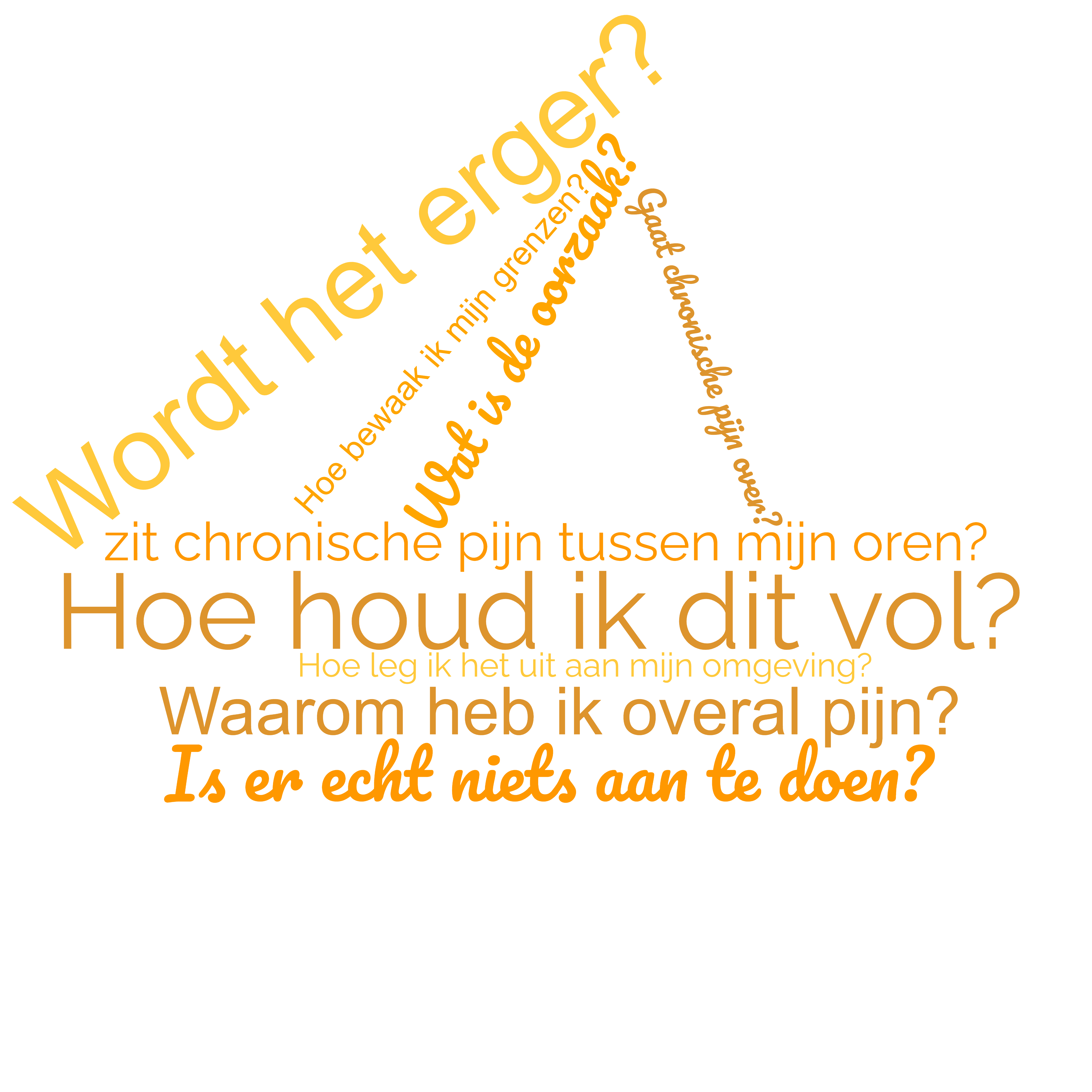Chronical pain
What is chronic pain?
Bij één In one in five Dutch people, pain lasts longer than three months. If the pain lasts longer than normally needed for recovery, it is called chronic pain. The pain does not go away, while the cause of the pain has disappeared. That is chronic pain.
Chronic pain is almost always present. Sometimes it is nagging pain and sometimes it is stabbing pain. The pain can be a little less at times and almost unsustainable at other times.
How does chronic pain occur?
Chronic pain occurs after the cause of the pain is already gone. The cause may be internal, such as inflammation, or external, such as an accident. After the cause has healed, the pain remains. Medically, the patient has recovered and there is no more need for treatment. Doctors then often say that no further treatment is possible, saying: “Je hebt chronische pijn, je moet er maar mee leren leven.”
chronic pain is an alarm set too sharply
A disrupted pain system
Pain warns of damage to the body. Your nerve sends a stimulus to your brain to tell it there is damage. Your brain sends a pain signal to keep the damage from getting worse.
Your nervous system actually works like an electrical alarm system. If your nerve transmits pain signals too much or for too long, it becomes overloaded. Your nerve thickens and your warning system no longer works properly. It stays on, so to speak, and cannot be turned off. Your pain system gets disrupted and becomes hypersensitive.
When this happens, things that should hurt a little hurt enormously. And something that shouldn't hurt suddenly becomes painful. The hypersensitivity of your nerves is a physical thing. It can be measured and is also observable. So chronic pain sits: "not between your ears". It means your nerves have become too sensitive and engage too easily.
What affects pain?
Chronic pain is a complex disease in which pain continues to send signals to the brain even after the injury or cause of the pain has healed.
Social and societal factors influence the perception of pain. When things in life are against you, your pain affects you more. Then you feel your pain more. If you have an argument with someone who means a lot to you, this can also result in you feeling more pain.
Tired of waiting for the pain to pass?
If your pain does not go away, it can have consequences far beyond the physical. Of course, all your attention goes to that first and everyone in pain takes every opportunity to get rid of the pain. If your pain turns out to be chronic, it changes your life. How you feel about it, mentally and physically, also directly affects your environment, at home and at work. You wonder about all kinds of things:
- Why am I in pain everywhere?
- Wat is de oorzaak?
- Is er echt niets aan te doen?
- Wordt het erger?
- Hoe houd ik dit vol?
- Hoe leg ik het uit aan mijn omgeving?
- Hoe bewaak ik mijn grenzen?
- Can you cure chronic pain?
- Is chronic pain psychological?
On our other pages, we give you answers to these questions.



